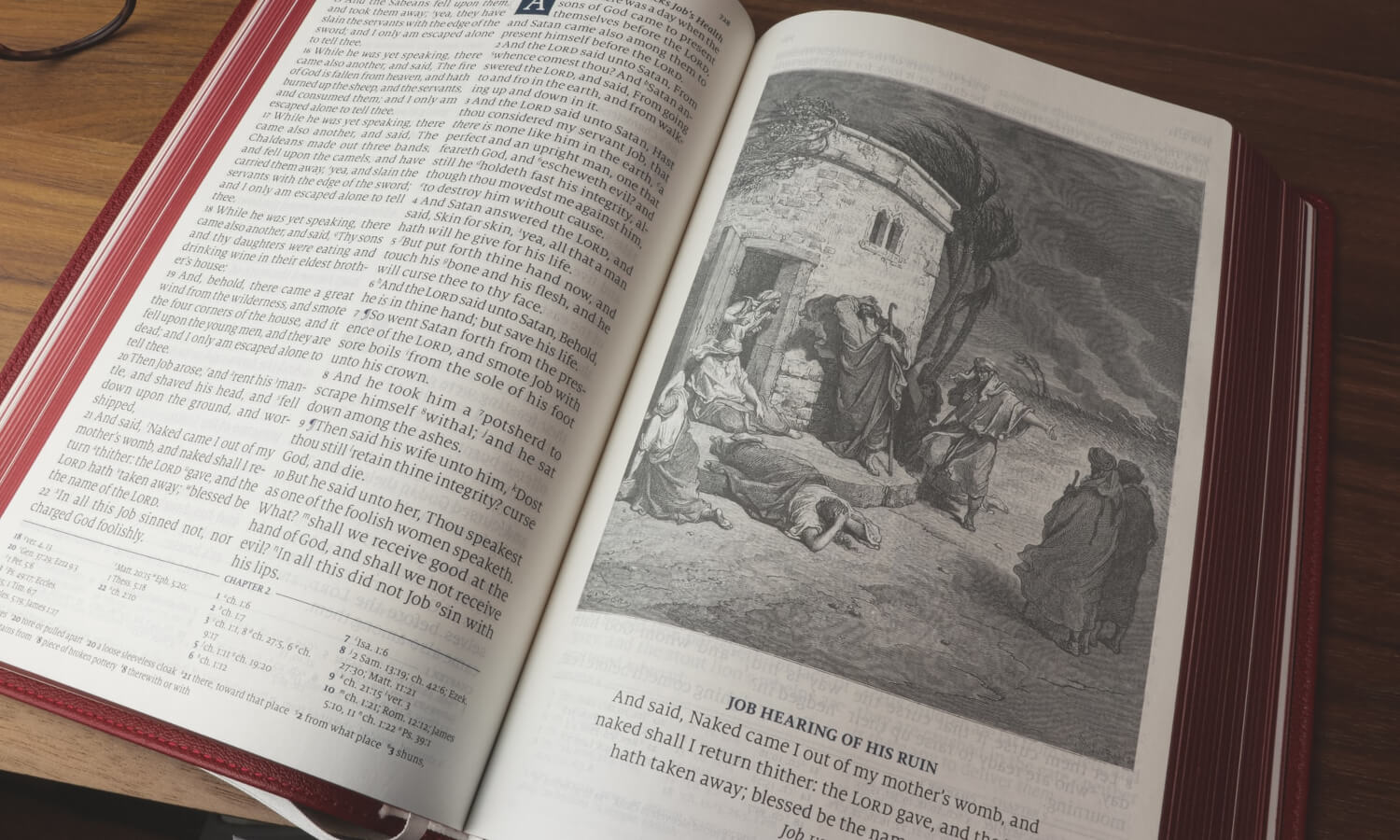
The book of Job is extremely old—possibly the oldest book in the entire Bible. It is expertly crafted wisdom writing that addresses some of the most important issues in life: Is God a good being? Is He supreme? Why does God allow suffering for the righteous?
The book’s design
A man by the name of Job, who “was blameless and upright, one who feared God and turned away from evil,” is the subject of the first two prose chapters of the book (Job 1:1). He had ten children and was extremely wealthy. Following this opening, the narrative changes and we learn of a dialogue between God and Satan.
When God pointed out Job’s innocence, Satan retorted, asking if Job feared God pointlessly. He will curse You to Your face if You reach out and touch all he owns. The challenge was accepted by God, who then told Satan, “Behold, all that he has is in your hand.” Only refuse to extend your hand toward him. The next lines describe how Job lost all of his wealth and even his children because he was unaware of the heavenly challenge. Yet according to Job 1:22, “Job did not sin or accuse God of wrong.” Three friends visited Job after he had also become ill in an attempt to console him.
The chats between Job and his three friends make up the bulk of the book, followed by a speech from a fourth friend and God’s words to Job. In every one of these discussions, the central query is: How is it possible for a good guy like Job to endure such excruciating pain? Why would God allow this to occur?
Another brief passage of prose, towards the end of the book, describes how Job humbled himself before God and how God turned around his circumstances. In addition to 10 additional children, he was bestowed with an abundance of belongings.
The theology of Job’s friends
Given that Job is regarded as a decent guy, Job and his friends are troubled by his suffering: how can God have allowed all of this to occur? Job is having difficulty answering this. In addition to his severe loss of children, health, social standing, and fortune, what is hurting him the most is the loss of his [close relationship with God]. According to Job 9:17, “He crushes me with a tempest and multiplies my wounds without cause,” it appears as though God has become an enemy. Job is desperate and lacks understanding.
His buddies are sure they know the answers. Their theology is simple and unambiguous: God is good, sovereign, and all-powerful. Therefore, Job’s suffering must be a result of some immoral actions. When Job insists he is innocent, they just argue that God is all-knowing and understands what is truly going on in Job’s heart, even though Job is unaware of his own wickedness.
Job becomes extremely irritated with his buddies since they merely repeat their meaningless statements without actually listening. “I have heard many such stories; you are all miserable comforters,” he yells. Will airy words ever come to an end? Job 16:2–3.
Speaking about God or speaking with God
Even though Job’s friends talk a lot about God, they never appear to go to God in prayer. Rather than being concerned with a close relationship with the Lord, their concerns are theological debates. This is not at all like Job. In the middle of his pain and bewilderment, he finds hope because he knows God personally. Among his most well-known quotations is:
“Oh, that my remarks had been recorded! How I wish they were written in a book! Oh, that they were permanently inscribed in the rock with an iron pen and lead! I am aware that my Savior is alive and will eventually make an appearance on earth. Even when my skin is destroyed in this way, I will still see God in my flesh; I will see him with my own eyes, and no one else’s. (Job 19:23-27).
Not only does Job communicate with his friends throughout the entire book, but he also calls out to God. Occasionally, he acts disrespectfully out of desperation, which he later regrets (see Job 40:3-5; 42:1-6). However, God asserts that, in contrast to his friends, Job has spoken of Him in a righteous manner (Job 42:7). He has shown no pretense and has been completely honest.
God’s answer
God speaks at the end of the book, when the friends’ “wisdom” has run out and the mystery of Job’s suffering remains unsolved. However, He doesn’t address any theological or theoretical concerns. Conversely, He is posing numerous queries to Himself, such as
“Where were you when I established the earth’s foundation? Please let me know if you understand. You must be aware of who determined its measurements! Or who laid the line across it? When the morning stars sang together and the sons of God screamed with pleasure, on what were its bases sunk, or who placed its cornerstone? Job 38:4–7
God shows Job via all of these questions that He is, in fact, greater than any human being in terms of power, goodness, and wisdom. While Job did not receive the answers he was hoping for, the Lord accomplishes something far more wonderful: He mends the connection. Job, in spite of his difficult circumstances and unsolved questions, accepts the magnificence and faithfulness of God.
That resolves the issue of Job’s loyalty to God, and Satan is no longer facing the “challenge.” The book’s final chapter describes how Job’s fortunes are turned around. The book ends with these words: “And after this Job lived 140 years, and saw four generations of his sons and his sons’ sons.” Job lived to be an elderly man and experienced many years (Job 42:16–17).
Some lessons for us
- The Bible makes it clear that Job’s suffering was caused by a challenge from heaven. But we rarely have this perspective in our own life. There may be a lot of unsolved questions. Since we can never fully comprehend anything, God does not want us to. He does, however, desire our trust.
- Job’s friends assessed him based on their narrow conception of God, and they were adamant about their theology. “My anger burns against you and against your two friends, because you have not spoken of me what is right,” the Lord vehemently denounced their actions (Job 42:7). We have to use extreme caution when speaking!
- Job was desperate and had no idea what was going on. However, he never strayed from God! He called out to Him instead. We are urged to follow suit.
See the movie below for a stunning artistic interpretation of Job’s life: Sandy Tale.





